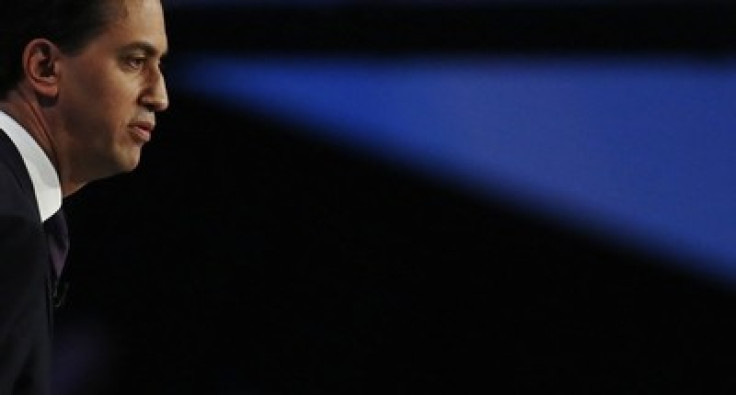Ed Miliband Signals Start of 'Wonga Election Campaign'

If it looks like a duck, walks like a duck and quacks like a duck then - it's a duck. And it is the same for election campaigns.
So in a revelation that might send many voters' hearts sinking, it can confidently be announced that the phoney 2015 election campaign is well and truly over.
This is now the real thing. And it is the direct consequence of the coalition's unchallenged decision to introduce five-year fixed parliaments. Like US presidential campaigns, administrations now know exactly when the poll will be - in the UK's case on Thursday, 7 May - and spend the second half of their term in office campaigning for it.
At least the uncertainty of the past meant that campaigns might stretch to six months or so but it was simply impossible to plan around specific dates in case the poll did not happen and all that energy was wasted.
So when Labour leader Ed Miliband delivered a keynote speech in London which set out a wide-ranging platform, it was instantly seen as the official start of the campaign - 18 months before polling day. The fact that he kept referring to "this general election campaign" only strengthened the impression.
He went on to map out what is now the settled Labour strategy for the longest campaign in recent memory - which could yet become known as the Wonga campaign.
As the payday loan company bosses appeared before a Commons committee to explain they were not the evil money lenders they are portrayed as being, the Labour leader declared: "The Wonga economy is one of the worst symbols of Britain's cost of living crisis."
He repeated his pledge to freeze energy prices for 20 months if elected and offer tax breaks to any firm agreeing to pay the living wage to its employees, boost the minimum wage, tackle zero-hours contracts and generally create "a different kind of economy" by fixing broken markets.
"The next general election will offer a big choice. A choice about whether we tackle the cost of living crisis or shrug our shoulders. Above all, the choice will be about who our country is run for.
"There is a Tory vision for Britain that has low expectations for what most people should be able to expect. Payday lenders can prey on the vulnerable. Millions of families see stagnating living standards. Energy companies can just carry on as they are, ripping off consumers," he said.
Falkirk 'vote-rigging' row
His vision, he promised, was for a different economy: "Where ordinary people feel the country is run for them."
He also attempted, almost certainly unsuccessfully, to bury the Falkirk constituency party "vote-rigging" row, refusing point blank to support former former chancellor Alistair Darling's call for a fresh internal inquiry.
The Tories were not being left out of this campaign. Rattled by Miliband's success in taking on the energy companies, the government turned to the water firms, with environment secretary Owen Paterson urging them to keep bills affordable.
"We are pressing hard to make sure customers get a fair deal by encouraging water companies to look closely at any price increases, introduce social tariffs for vulnerable customers and crack down on bad debt," he said.
And there will be much more of this to come. Miliband has, so far, succeeded in moving the campaign debate on to the cost of living, as opposed to the recovery which is where the government wants it.
All attention is now focussed on chancellor George Osborne's autumn statement on 4 December in which he is expected to offer policies designed to meet the cost of living concerns while underlining the government's success in producing growth.
It will, without doubt, be seen as an autumn statement for the general election campaign.
© Copyright IBTimes 2024. All rights reserved.






